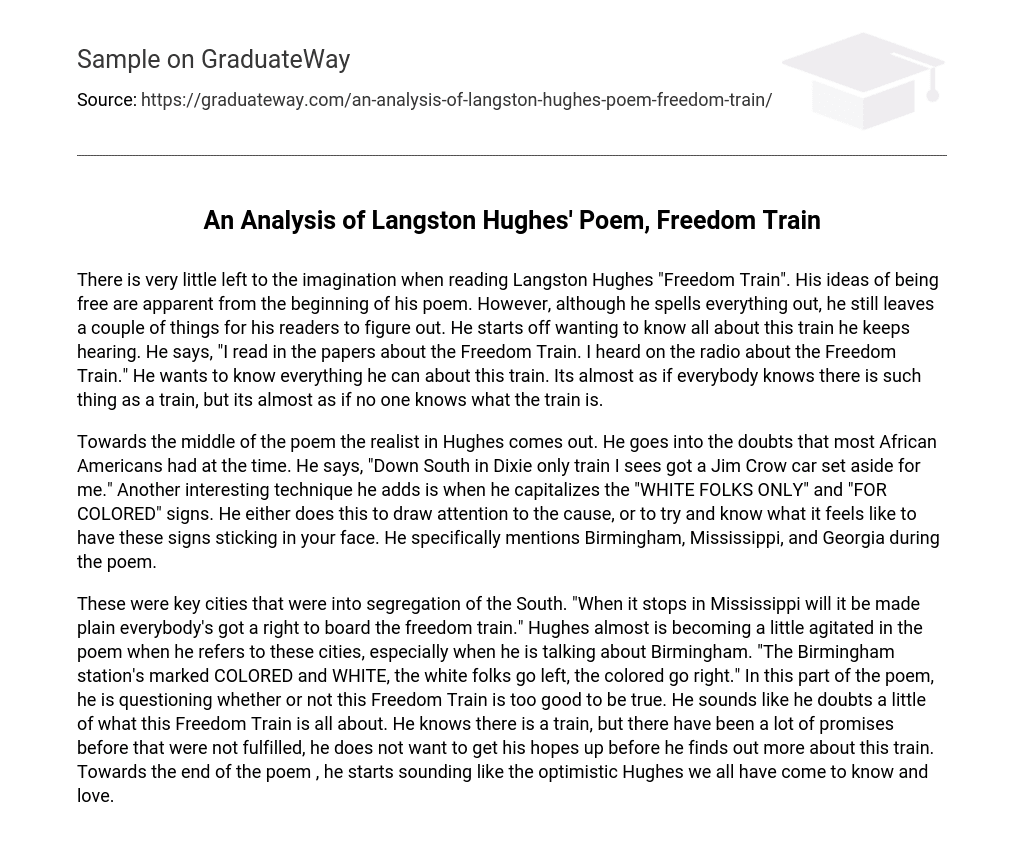In his poem “Freedom Train,” Langston Hughes openly shares his thoughts on freedom. He directly expresses his interest in the train he has been hearing about, stating, “I read in the papers about the Freedom Train. I heard on the radio about the Freedom Train.” It is evident that he desires to gather as much knowledge as possible regarding this train. It appears that everyone is aware of its presence but uncertain about its actual essence.
Towards the middle of the poem, Hughes reveals his realist perspective by exploring the doubts experienced by African Americans at that time. In one instance, he highlights the segregated train cars in the South with his statement, “Down South in Dixie only train I sees got a Jim Crow car set aside for me.” Additionally, an interesting technique employed by Hughes is capitalizing the phrases “WHITE FOLKS ONLY” and “FOR COLORED” signs, perhaps aiming to draw attention to the cause or seeking to empathize with the discomfort caused by these signs. Notably, he specifically mentions Birmingham, Mississippi, and Georgia throughout the poem.
These cities were important locations in the South that practiced segregation. In the poem, Hughes expresses his irritation, particularly when discussing Birmingham. He remarks, “The Birmingham station’s marked COLORED and WHITE, the white folks go left, the colored go right.” At this point, he questions whether the Freedom Train is truly as promising as it seems. He appears uncertain about what this train represents, cautiously avoiding getting his hopes up based on past unfulfilled promises. However, as the poem progresses, Hughes begins to convey a more optimistic tone for which he is renowned.





